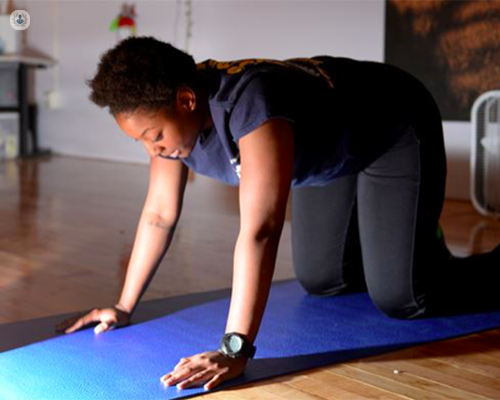When should I be worried about my chronic pain?
Autore:In this article here below, esteemed pain management specialist, Dr Deepak Ravindran, tells us when people should get checked out by a medical professional for chronic pain complaints, and explains why some of us suffer from chronic pain.

When should I be worried about my chronic pain?
Chronic pain is often very personal and it can be quite challenging for a person to deal with due to how it impacts on their quality of life, their sleep, and the fact that they have to take a lot of medication.
I would recommend that people seek medical help for their chronic pain if it lasts longer than 12 weeks. The definition of chronic pain is when pain lasts for up to three months after an acute event such as surgery, a fall, or an injury to any part of the body.
Why might I be suffering from chronic pain?
Nowadays, due to the technology and research tools available, we are noticing more and more cases of unexplained pain than before and the scans/results are all normal. In other words, pain doesn’t necessarily always have to be caused by a muscle, tissue, or structural issue.
There are, broadly speaking, four or five main reasons why someone might be suffering from chronic pain. Firstly, it could be due to some structural or tissue issue that can be detected via X-ray/MRI/CT imaging.
Lifestyle factors such as increased stress and a lack of sleep can also lead to chronic pain, as well as having a poor diet. These are potential triggers for chronic pain. A third reason can be the occurrence of an autoimmune disease or cancer, and the treatment for this can cause side effects of chronic pain. Surgery can also be a cause for chronic pain.
Suffering neglect or abuse as a child can severely impact the developing nervous and immune system when we are growing up, and we are discovering now that this can lead to chronic pain.
How will the cause be diagnosed?
There are many ways to diagnose the reason for chronic pain. The simplest is an initial blood test. The next step can be simple imaging such as X-rays, followed by CT or MRI scans. Then, in some severe cases, nerve conduction studies can also be carried out. A clinical history is also hugely important before doing these abovementioned tests to guide us towards the most appropriate imaging.
Is chronic pain curable?
This depends on the diagnosis of the cause of chronic pain. It is generally a sensation, but it can also often be an emotion. Simple medications can be administered to patients, and non-drug treatments are also highly effective when it comes to managing chronic pain.
This is what we call a holistic approach to overcoming chronic pain. We can still provide a personalised integrative treatment plan even in patients where the chronic pain is quite complex.
What are the most effective treatment options for chronic pain when medication doesn't work?
Medications are not the answer for every case of chronic pain. This is due to the fact that these drugs have side effects. Steroid or Botox injections can be used in some people, and are both minimally invasive techniques.
Neuromodulation can also be done. This is more invasive, and surgery is of course available for some severe cases of chronic pain. When the nervous system is the main cause of chronic pain, integrative lifestyle medicine focussed approaches of nutrition, physical activity, and stress-management techniques can really help.
If you wish to book an appointment with Dr Deepak Ravindran, just visit his Top Doctors profile to do just that today.


